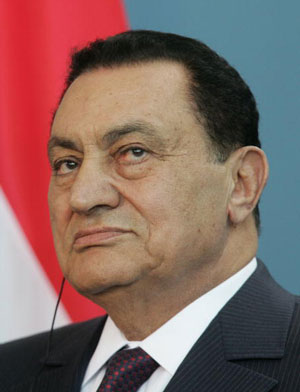The Middle East has been the incubator of most of the world’s upheaval and torment over the last 35 years. The juxtaposition of a rapidly growing population facing the inequities of minimal opportunity and available education, while a small minority has reaped the benefits of mineral wealth and political power, has created a particularly unstable state of society. Additionally the febrile mix of radical Islamist expansionist dreams and sense of retribution has made the region a pressure pot for potentially explosive violence. There have been many vents created by the region’s dictatorial governments to direct the pressure away from their vulnerable positions as elite minority rulers, the primary farce the existence of Israel as an intolerable affront to the notion of pan-Arabism and pan -Islamism. Israel, the singular representative democracy in the region, where as citizens both Arab and Jew have voting rights, personal rights, and representation, is a scathing reminder of the absence of such Arab citizen rights in the home countries of Arabs. The removal of the odious dictator Hussein from Iraq in 2003 and the subsequent development of a nascent democracy, has made it clear to all in the region that a better life is possible without the overbearing “guidance” of dictators. The seeds of the flame of individual freedom after Iraq first spread to Lebanon and the Cedar Revolution of 2005, extinguished only by the money of the theocratic dictators of Iran and the ruthlessness of their foil proxies Hezbollah , then to Iran itself with the 2010 Green Revolution, left to languish by President Obama’s incapacity and curious comfort with the theocracy, and finally to Tunisia last month and what is now called the Jasmine Revolution , with the overthrow of the iron fisted dictator Zine El Abidine Ben Ali who ruled for 23 years with no hint of reform.
The autocrats still standing, particularly the strongman Gaddafi of Libya, the House of Saud in Saudi Arabia, Khamenei of the non-arab Iran, Assad of Syria, and prominently Mubarak of Egypt have recognized the pattern beginning with the upsetting of the apple cart in Iraq perpetrated by the United States and have been determined to isolate and destroy any local tendencies in their restive populations to follow suit. Now it appears the tidal wave has engulfed Mubarak,  the 82 year old president for life who has ruled Egypt since President Sadat’s assassination in 1981. Fouad Ajami, the brilliant and insightful professor of mid east studies at Johns Hopkins helps to frame the underpinnings of Egypt’s current tumult. Mubarak has been propped up for over thirty years by the U.S.’s annual tithe of billions in aid, based on his maintenance of Sadat’s sacrificial stance of recognizing Israel,
the 82 year old president for life who has ruled Egypt since President Sadat’s assassination in 1981. Fouad Ajami, the brilliant and insightful professor of mid east studies at Johns Hopkins helps to frame the underpinnings of Egypt’s current tumult. Mubarak has been propped up for over thirty years by the U.S.’s annual tithe of billions in aid, based on his maintenance of Sadat’s sacrificial stance of recognizing Israel,  but the pressure keg of slights perceived by his own people denied the simplest opportunity makes this annual bet in his continuing control of events precarious.
but the pressure keg of slights perceived by his own people denied the simplest opportunity makes this annual bet in his continuing control of events precarious.
The military in Egypt has so far remained committed to Mubarak, one of their own. The police however have been wavering, as many of the members are closer to the painful poverty that pervades Egypt’s large cities. The dangerous rival for the people’s loyalties, the Muslim Brotherhood, and radical Islamic organization at the root of Sadat’s assassination and brutally suppressed by Egypt’s security services are lying in wait for the crumbling edifice of unity of the current government to finally collapse and bring them to power, with unstable reactions likely to be felt in Gaza, Jordan, Saudi Arabia and even Israel.
The United States for decades perceived a unified Arab voice in governance and antipathy toward Israel, when the reality was that each of the Arab countries masked a progressively restive population that continued to grow bolder in their own sense of particular need. The effect of any other option of government to Mubarak is unclear, but inevitable. The progressive influence of Iran and its particularly rabid and religiously framed fantasies about Israel make a very dangerous region progressively more so to the fragile peace that exists. The story of Egypt may go the way of the other mid East revolutions, briefly bright, calamitous, but eventually extinguished, or it could stimulate a full blown cataclysm. Either way, it is likely to be a critical story effecting those of us who treasure the concept of civilized freedom and wish it to prosper, for sometime to come.
